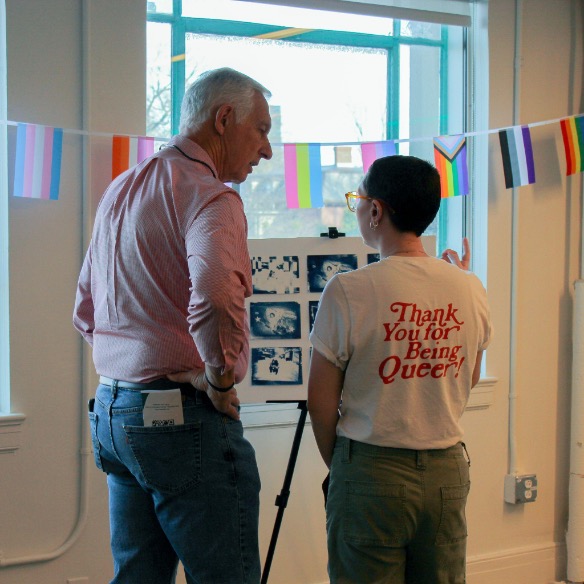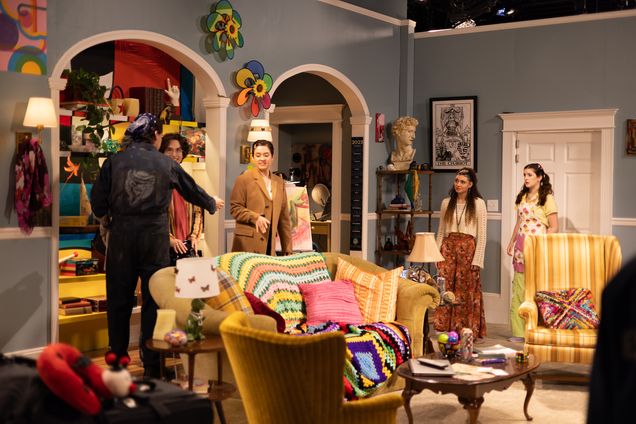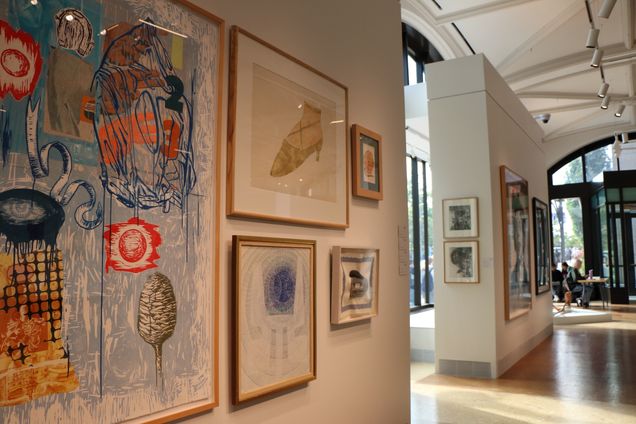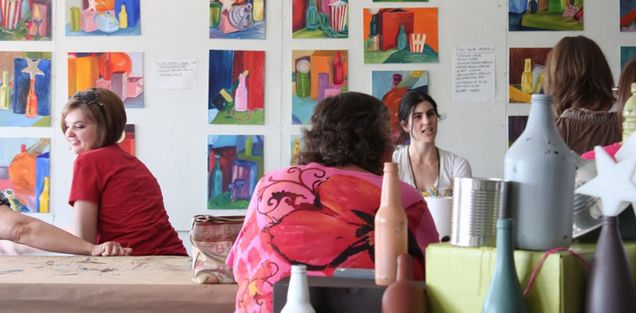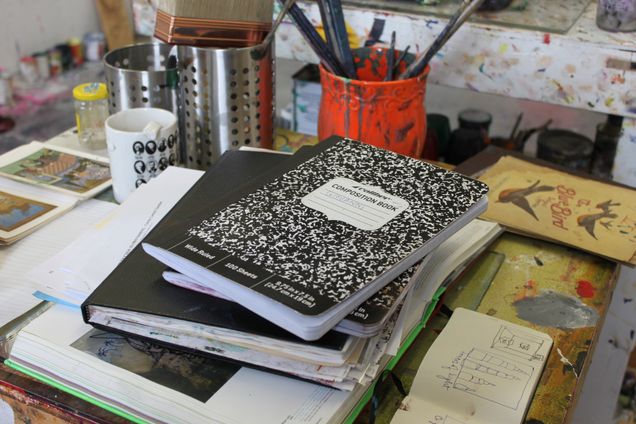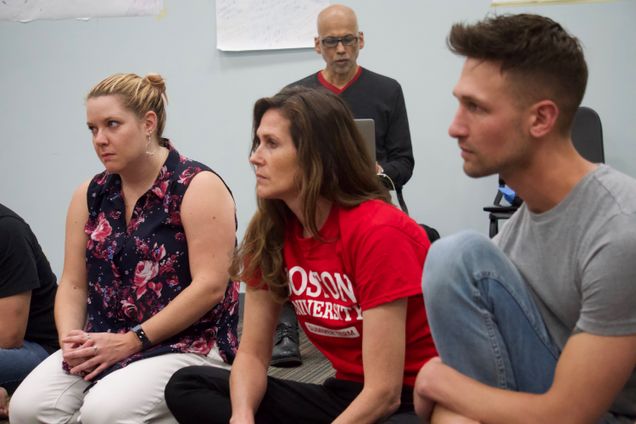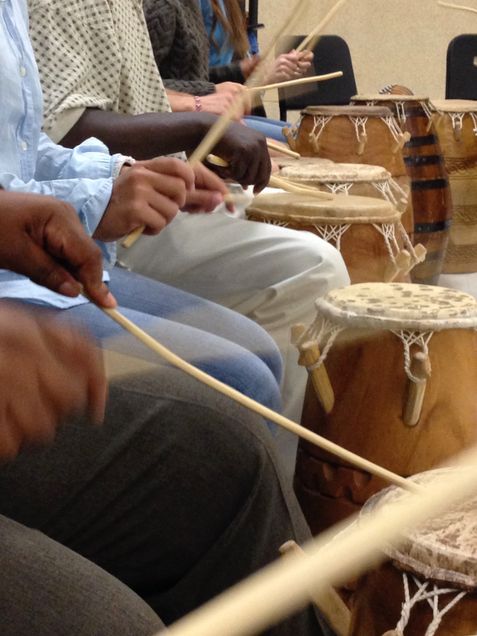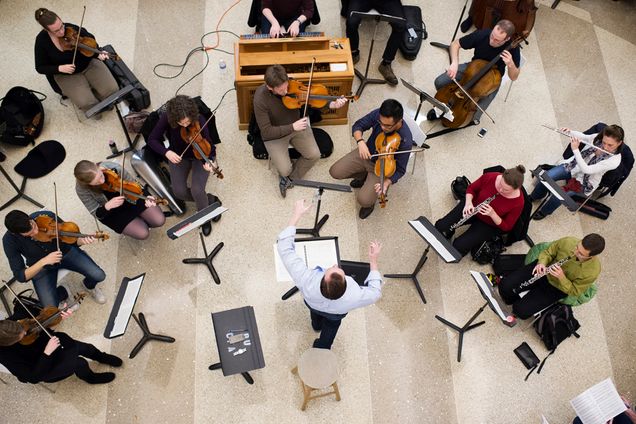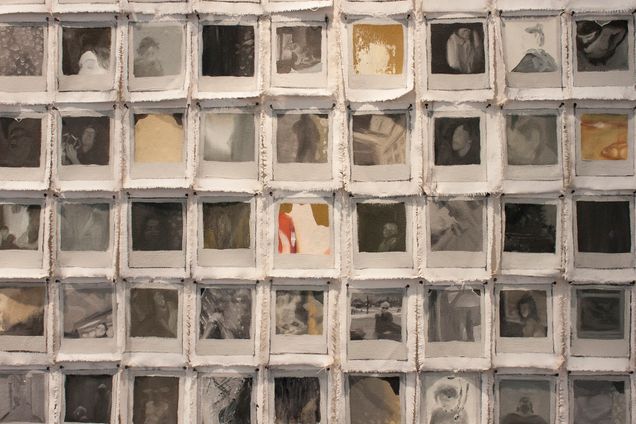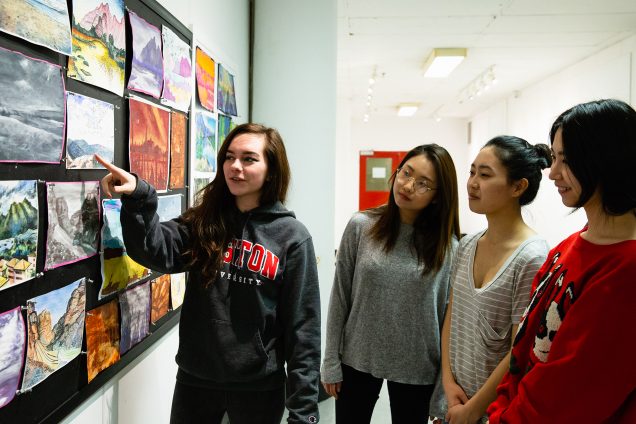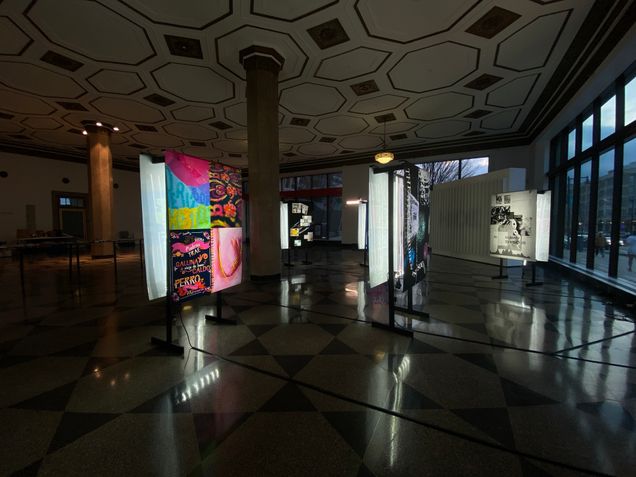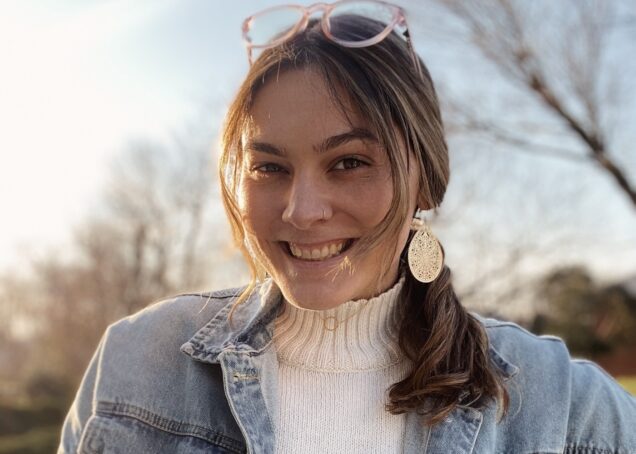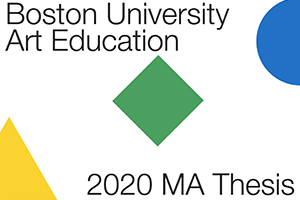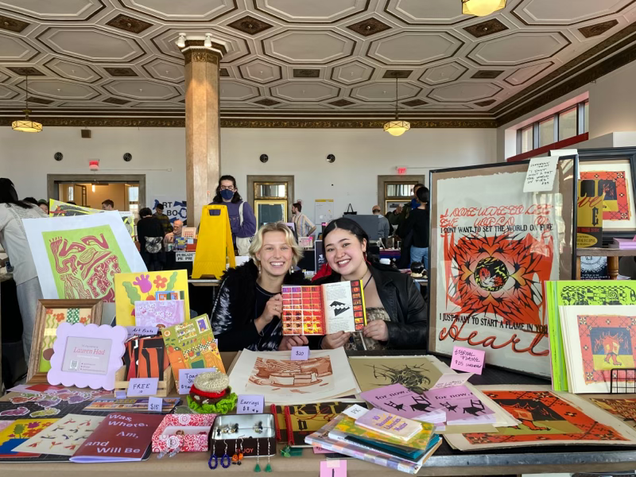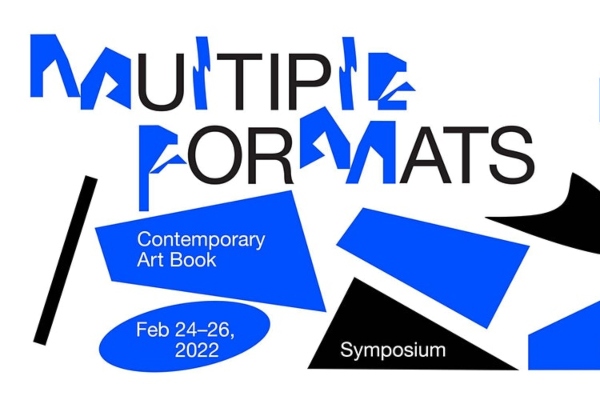Students complete at least 7 courses and at least 32 units. Courses run in seven-week intensives where students take one course at a time. Students typically complete two courses per semester and can complete the program in 18-24 months. CFA students taking courses in the online program should register for a maximum of two 4-unit courses per semester (8 units). Boston University considers students registered for 12 units per semester to be full-time and are charged the Boston University full-time tuition rate.
Graduate students must maintain a semester and cumulative grade point average (GPI/GPA) of at least 3.00 to be in good academic standing and to graduate from the College of Fine Arts.
Core Courses
Click on a course name below to read the description.
8 units, all required
AR600 (4 units)
With an arts-research approach, this course allows students to explore and respond to contemporary issues while developing their own craft and building a creative learning community. The course surveys the roots of contemporary art and pedagogy and the shift to postmodernism, including influential figures, theories, and trends and their impact on art education. A deep-dive investigation into masks as universal but complex, culturally-embedded phenomena provides students in the course with a unique lens. Students investigate the popularity of masks in global contemporary art and the roots of these masks that speak to culture, identity, privacy, and other issues of the moment. Responding to course content by creating art, students stretch and expand their knowledge of the mask form and use it as a tool to examine pressing issues in the contemporary art classroom. The in-depth focus enriches the background, ideas, and approaches teachers can bring to mask making, a valuable but often challenging project, but also use as a model. Through ePortfolio and online discussions, students create a community of learners. A culminating project, such as a unit plan or autoethnography, synthesizes traditional research methods with arts-research insights and tackles the complexities that arise in a multi-cultural curriculum, such as appropriation, transnationalism, and ahistoricism.
AR620 (4 units)
This course offers the study of contemporary techniques for the implementation of goals and the use of essential questions when planning curricula and programs of education at all levels, such as PreK-8 and 5-12. The instruction includes consideration of enduring understandings and planning for knowledge transfer appropriate to students’ stages of development, and community as well as individual needs. A substantial written curriculum document is submitted as a final requirement, at the completion of the course.
Research
8 units, all required
AR890 (8 units)
The purpose of this course is to introduce students to teacher-led, classroom-based research as a means of addressing issues facing art teachers, artists and teaching artists in schools and other community-based settings and providing the tools to be a reflective practitioner. The course will introduce students to the conventions and practice of qualitative research in the context of art education and as a form of inquiry that is grounded in the theories, practices, and contexts used by art practitioners working in schools, museums, and community organizations.
AR892 (8 units)
The course introduces students to modes of inquiry focused on arts-based research methods that use the artistic process as the primary way of understanding and examining experience and the creation of knowledge. Students will be guided through the exploration of various approaches to arts-based research, allowing them to investigate the making of artistic expressions as an alternative way to engage in inquiry and scholarship. Students will pursue their own artistic investigation as research or engage in an art-based educational methodology that examines others’ artwork and practices, the project will invite the creation of a definite method that will start with a question or goal, be explored contextually to then be implemented in such a way as to be relevant to other researchers. This course is taught over 14 weeks.
Electives
16 units, select four courses
AR605 (4 units)
This course offers an overview of creative qualitative research design and methods relevant to the fi eld of art education. In this course, students will be introduced to essential tools used in the research process. The modules include an overview of fundamental research terminology, and help students gain familiarity with the methods and ethics involved in conducting research. Students will examine their positionality as researchers and learn how issues of validity, subjectivity, and positionality impact their research. Important topics will be examined through readings, presentations, live classrooms, online discussions, and written assignments, culminating with a mini research proposal. Although this is not a required course, it is highly recommended and will be very useful to students preparing to take their Capstone Research Project course.
AR610 (4 units)
This course will introduce the historical, legal, and educational facets of protected populations in the United States with a focus on art education. Discussed populations are those with needs that require individualized attention, awareness and considerations in an educational setting including students with physical, intellectual and cognitive special needs as well as other underrepresented student groups. The goal of this course is to introduce and explain characteristic behaviors, strengths and weaknesses of various disabilities and discuss strategies for differentiation of instruction, classroom management, and accommodations for the art classroom. Existing and emerging technologies and pedagogical methods will be discussed in order to make the artistic process accessible and meaningful to all students regardless of their emotional, intellectual, or physical capacities.
AR630 (4 units)
This course will examine the cognitive and artistic development of children, specifically focusing on the role of environment and culture in shaping the child and the layered integrations they form over time. Artists-teachers need carefully consider the nature of those who will learn, what is to be taught, and the values of the society in which education takes place. The course will offer opportunities to reflect on the various conceptions of a child that will guide educational practices from behavioral psychologists to artists and educators. The learners will engage in discussions, critical reading and writing, visual presentations, and qualitative inquiry to demonstrate their understanding of the psychological, cultural, and artistic development of children and adolescents. The theories of foundational developmental psychologists Piaget and Vygotsky will be considered as well as the theories of artistic development put forth by Lowenfeld, Burton, Golomb, Wilson, and many others.
AR670 (4 units)
This course provides an introduction to issues of policy and advocacy that are relevant to arts education practitioners. We explore the nexus between problems in arts education and the systems that influence schools, cultural organizations, and society. We identify and analyze policies that shape our own professional settings as well as the agencies and partners involved. We research stakeholders, socio-political contexts, resources, and strategies for improving arts education with culturally relevant advocacy. The course centers on drafting a policy proposal and advocacy plan that empowers artist-teachers to take stock of their own leadership skills and apply them to contemporary issues.
AR680 (4 units)
This course is designed to acquaint and prepare in service art teachers with the basic skills and organizational strategies of leadership and management that are needed to serve within school systems and arts educational organizations. Our goal is to prepare in-service art teachers for insightful and strategic leadership within arts educational settings and to be effective agents of change along with being This course is designed to acquaint and prepare in-service art teachers with the basic skills and organizational strategies of leadership and management that are needed to serve within school systems and arts educational organizations. Our goal is to prepare in-service art teachers for insightful and strategic practice of leadership through a social justice lens.
AR690 (4 units)
This course is intended to enrich art educators’ understanding of the Western origins and on-going development of Visual Arts education in the United States, along with Invisible histories and Non-Western influences. It will acquaint students with the rich histories of their field through discussion, practical application, research and writing a historical paper. Beginning with the emergence of art education through an early apprenticeship model and progressing through the centuries to a post-modern understanding of what Visual Art Education means and is, grounds the content of this course.
AR870 (4 units); Held on campus at Boston University
Week-long residency during which morning and afternoon studio sessions will be attended in addition to trips to museums and social events. Students will be required to keep a visual journal-sketchbook and to complete a final assignment prior to Fall I semester.
ME548 (4 units)
To model real-world arts-integration implementation, students will engage in team-based learning and project development between arts and non-arts subjects, and/or between the arts disciplines. Collaborative projects will be informed by the histories, theories, philosophies, approaches, and exemplars of arts integration programs in North America.
Focuses
The MA in Art Education offers students elective choices along with two optional faculty-designed focuses as described below. This will give students the ability to custom fit a degree tailored to their individual educational goals and professional needs.
Your creative spirit can add an entirely new dimension to educational leadership. The best leaders are creative problem solvers, and have access to a diverse skill-set that enables them to be effective in many roles. Discover how your gift for managing a classroom and developing innovative learning strategies is of great value in building an educational community grounded in the arts. A student who graduates with this focus will be ready to assume an administrative role as a curriculum designer or Fine Arts program director, a professional development organizer, and an advocate for their institution and the value of arts education.
Core Courses + Required Electives
- AR680 Insightful and Creative Leadership (4 units)
- AR670 Advocacy & Policy (4 units)
- + 2 more electives of your choice
Great art teachers are informed and inspired in their teaching by possessing a strong personal relationship with art. Artist teachers believe that art holds a valuable place in the fabric of our culture which is why they take their role as educators so seriously. They feel an obligation to transfer their passion and love for the creative process to the students whose lives they touch. It is this strong belief that encourages many prospective students to seek new methods for instruction and delivery that serve as the impetus for creating a new generation of artists in our world. As a student who graduates with this focus, you’ll be exposed to the educational techniques and the artistic inspiration that will empower you as an educator to encourage more students to begin a relationship with art.
Core Courses + Required Electives
- AR870 Summer Studios (4 units); delivered on campus at Boston University
- AR690 History of Art Education (4 units)
- + 2 more electives of your choice
Core Courses + 4 electives of your choice
Choosing this option means there is no studio requirement and that the program may be delivered 100% online. You may, however, take Summer Studios as one of your 4 elective choices.



